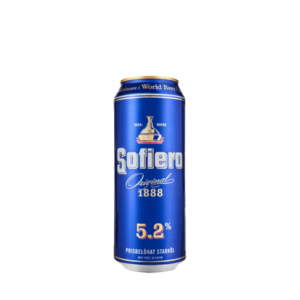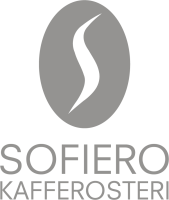In a case earlier this spring, the Swedish Patent and Market Court dismissed an infringement action based on the reputed mark SOFIERO in relation to beers against SOFIERO KAFFEROSTERI used for coffee. The court concluded that coffee beans and ground coffee are dissimilar to beer and that the relevant consumer is not likely to find a link between these signs. Consequently, no detriment or unfair advantage could be found.
The case concerns the companies Kopparbergs Bryggeri Aktiebolag (“Kopparbergs”) and Sofiero Kafferosteri AB (”Sofiero Kafferosteri”). Kopparbergs’ trademark ”SOFIERO” has been used extensively in relation to beers since 2003. SOFIERO has been the most selling beer at Systembolaget – the Swedish government-owned chain of liquor stores with a monopoly in Sweden to sell alcoholic beverages exceeding 3.5 % alcohol by volume. Sofiero Kafferosteri, on the other hand, was established in 2014 and uses its trademark in relation to coffee beans and ground coffee as well as its company. The case includes both Sofiero Kafferosteri’s claim for Kopparbergs’ trademarks to be partially revoked due to non-use, and Kopparbergs’ claim that Sofiero Kafferosteri’s use infringes the SOFIERO trademarks. This text will focus on the latter.
Kopparbergs had claimed that Sofiero Kafferosteri’s use of its trademark infringes the SOFIERO trademarks since (i) there exists a likelihood of confusion and (ii) the use takes an unfair advantage of, or is detrimental to, the distinctive character or the repute of the SOFIERO trade marks. In relation to the infringement in the reputed mark, Kopparbergs had argued that the consumers would create a link. Kopparbergs had, however, not elaborated further in relation to the link.
In relation to the infringement claim, the court began by assessing the likelihood of confusion. The court, by making the appropriate references to relevant EU-case law, quickly established that the signs were similar as they both included the distinctive word element SOFIERO, which was the most important element of the signs. In relation to the comparison of the goods, the court emphasized that the good for which Sofiero Kafferosteri’s sign was being used related to coffee beans and ground coffee. These goods are not beverages, even if they can be used in the preparation of coffee beverages. The trademarks SOFIERO, on the other hand, were protected for beers and other beverages in class 32. As coffee beans and ground coffee cannot be drunk without any preparation, the court established that they differ in both nature and purpose from beers. Neither are they complementary, as a consumer who buys coffee would not find it necessary to also buy beers, nor in competition, as one would not choose between beers and coffee beans or ground coffee. The conflicting goods are further not sold in the same departments of the same stores. Consequently, the court held that these goods are dissimilar and, thus, no likelihood of confusion existed.
In relation to the claim of infringement due to reputation, the court concluded that the SOFIERO trademarks are reputed and continued by assessing the possibility of a link to be created between the marks by the consumers. The court stated that the reputation of the earlier mark was limited to beers. As such, there is a low probability that a consumer who would encounter Sofiero Kafferosteri’s trademark on a package of coffee would think of the SOFIERO trademark (which is limited to beers). The court therefore concluded that Kopparbergs had not successfully shown that a link between the signs is established, or that a substantial risk for that this will be established, in the mind of the relevant consumer. As such, no infringement in the SOFIERO trademarks could be established.
This case shows further how the establishment of the Patent and Market Court in 2016 has moved Sweden closer to EU-practice when assessing a likelihood of confusion. The conclusion that coffee beans and ground coffee is dissimilar from beverages is in line with EUIPO’s practice. In relation to the court’s assessment of a possible link, this author wonders if the outcome could have been different through a more thorough argumentation by the claimant.
_____________________________
To make sure you do not miss out on regular updates from the Kluwer Trademark Blog, please subscribe here.




